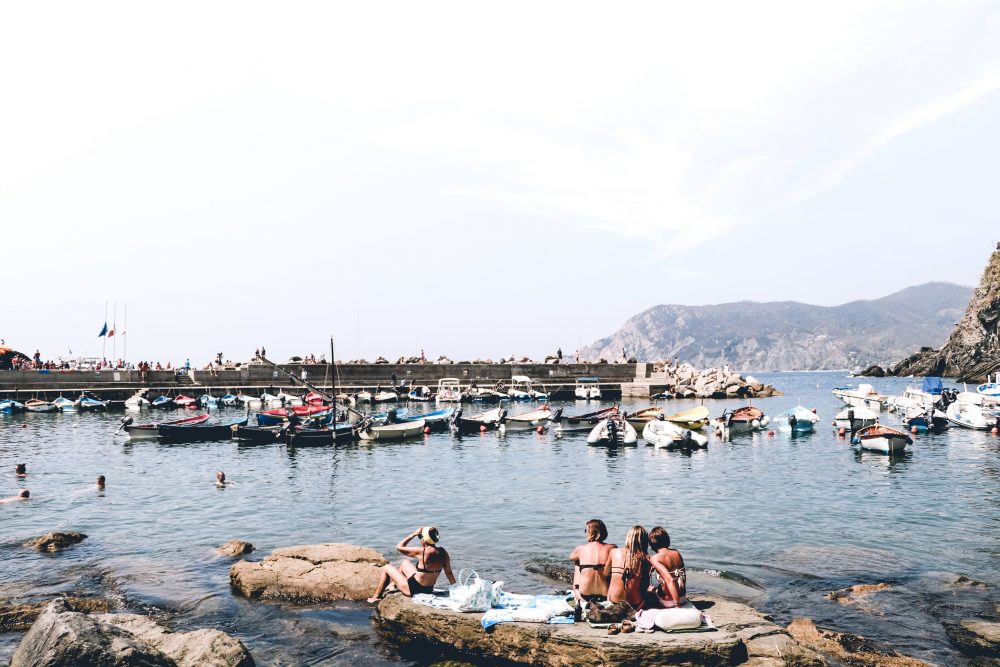Late July last year, I said goodbye to my family by the International Departures sign, leaving for my semester exchange. It was not only my first time going overseas on my own, but also my first solo trip of any kind. I don’t do things by halves – if I was leaving, I was going to make it big.
Six months later, I had navigated a handful of different countries and cultures alongside a different university system. In the next two months, I have seven more countries planned. As much as I’d like to claim that I threw away my life to ‘find myself’ in a Thai village, this adventure was years in the planning. It’s a daunting task, but well worth it, and I’m here to impart some of my worldly wisdom to you.
Welcome to The Guide to (Ex)Changing your Life.
Before you leave:
- Apply to a host university
I’ll give the same advice Monash Abroad does—plan early. After exploring my options for about a year before I even applied, I changed my mind about my destination twice before I settled on the United Kingdom. Finding the right place takes time.
Focus on a few key factors when choosing a host university, such as location, classes and student life. Don’t worry about university rankings, because they don’t give you any indication about student satisfaction. Instead, think about what you wish Monash had. Is there a certain subject you want to study? A type of student life you want to live? Now’s your chance.
Prepare your application early, because you never know what issues could arise (like your faculty sending your study plan to the wrong place, which happened to me).
- Work, work, work
Exchange costs money (shocker), and you’ll need to get a minimum mark to be nominated by Monash to study at a host university. Remember that there are limited spots available in some universities, especially if you want to study in the US, so it can be competitive. View it as motivation.
- Plan your travel outside your exchange
You don’t have to have everything figured out before you leave, but it helps to organise the beginning. My first five weeks, when I was still getting used to travelling alone, were documented meticulously in a folder filled with my timeline, flight itinerary, hostel addresses, tour details and photocopies of my passport and visas.
- Ensure that the legal stuff is sorted
I’ll make this one brief, because it depends on where you are headed. Apply for your study visa at the earliest possible chance. Make sure you have all of the needed paperwork ready to go. Follow any guide your host university gives you so you don’t make any mistakes. Research tourist visa requirements for any other places you want to visit (like Vietnam). Look into local laws, especially if you’re going somewhere with a very different culture to Australia.
In short, never assume anything—get answers.

Dive headfirst into an adventure to remind yourself why you love travelling.
During your trip:
- Handle homesickness
My family would be devastated to learn that I haven’t missed them as much as I might proclaim in my video calls. By the time I got to Paris I even had to ask them to give me some space, because clearly, the 16,000 kilometres weren’t enough. Still, homesickness gets to all of us and for me, Christmas was the season for it. Mum sent me photos of my two dogs wearing reindeer antlers, and of the decorations I’ve seen since infancy. Compared to my scarce flat, it was easy to feel lonely.
One way to deal with homesickness is to make your surroundings feel more like home. After visiting the British version of Kmart, I returned with a few small presents that I wrapped in newspaper, tied with wool and placed by my window-sill. Suddenly, I had something special to look forward to on Christmas Day, and it did wonders for my mood.
A second method is to dive headfirst into an adventure, to remind yourself why you love travelling. Run down and tired at university, I booked an impromptu trip to Edinburgh. The moment I stepped off the bus and walked through the beautiful and unfamiliar city with nothing but my backpack, my longing for home vanished.
- Don’t fixate on the friendships lost, both old and new
Leaving Australia for eight months may have murdered some of my friendships, I’m still not sure. However, there are people I’ve grown much closer with as we’ve put in the effort to stay in touch. You can’t hold on to everybody, but some relationships will prosper in the harder times.
Then there are the new people you meet who you inevitably have to leave. Just a few days ago I parted ways with somebody I’d met while studying, both of us sobbing. Walking away was the hardest part of my trip to date, but it’s a testament to how great the past months have been, and how fortunate we are to have met in the first place. It’s also another reason on the growing list to return one day.
- You don’t have to be a traveller 24/7
While I encourage everybody to make the most of their time abroad, I know it’s exhausting. There will be some mornings where you want to sleep instead of going for an early hike, and some nights where you’d rather eat a burger instead of trying the local cuisine. Don’t beat yourself up about it. It’s impossible to do everything, and if you need to switch off from ‘traveller mode’ every now and then, that’s okay.

Don’t be scared to take the first step, as terrifying as it may be.
After your trip:
- Adjust to life back home
Whenever I tell somebody I’m from Melbourne, they reply that it must be a fun place to live. I wouldn’t know, because there’s a lot about the world’s most liveable city that I haven’t experienced. Looking at home as a traveller instead of a local will be a welcome challenge, and perhaps a different type of adventure.
- Plan your next journey
Before I left, I knew what I wanted to do with my life. I would finish my exchange and graduate as soon as possible so I could start my career. I’d save for a house deposit (once I cut those pesky smashed avos out of my life). I’d even made an optimistic but achievable timeline.
Now I see too many possibilities for another adventure, and not just by travelling. Instead I could complete an honours year and see where that takes me. I could return to England to teach or spend a year or two in Japan. I feel capable of pursuing things I never would have considered before.
Don’t be scared to take the first step, as terrifying as it may be. Embracing the unfamiliar, like navigating an airport on my own or managing a disorienting language barrier, has been my favourite part of travelling. Be afraid when you research host universities but apply for one anyway. Be afraid when you look at the lengthy flights, but book one anyway. Remember that the thought is scarier than the reality, and the experience will change you for the better.
